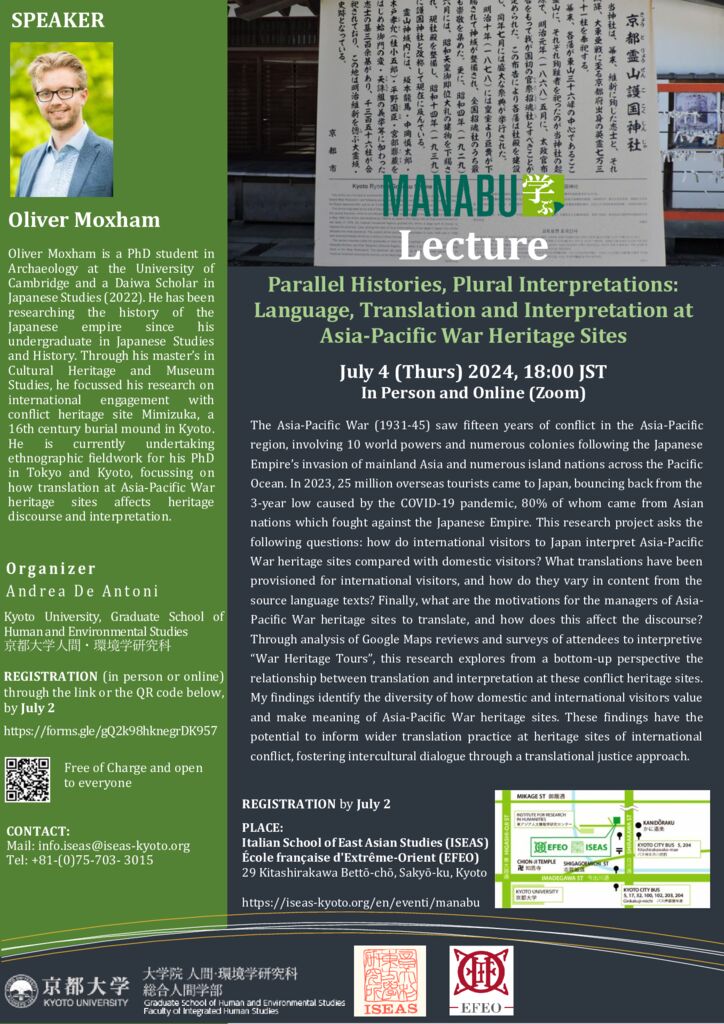The Asia-Pacific War (1931-45) saw fifteen years of conflict in the Asia-Pacific region, involving 10 world powers and numerous colonies following the Japanese Empire’s invasion of mainland Asia and numerous island nations across the Pacific Ocean. In 2023, 25 million overseas tourists came to Japan, bouncing back from the 3-year low caused by the COVID-19 pandemic, 80% of whom came from Asian nations which fought against the Japanese Empire. This research project asks the following questions: how do international visitors to Japan interpret Asia-Pacific War heritage sites compared with domestic visitors? What translations have been provisioned for international visitors, and how do they vary in content from the source language texts? Finally, what are the motivations for the managers of Asia-Pacific War heritage sites to translate, and how does this affect the discourse? Through analysis of Google Maps reviews and surveys of attendees to interpretive “War Heritage Tours”, this research explores from a bottom-up perspective the relationship between translation and interpretation at these conflict heritage sites. My findings identify the diversity of how domestic and international visitors value and make meaning of Asia-Pacific War heritage sites. These findings have the potential to inform wider translation practice at heritage sites of international conflict, fostering intercultural dialogue through a translational justice approach.
Oliver Moxham is a PhD student in Archaeology at the University of Cambridge and a Daiwa Scholar in Japanese Studies (2022). He has been researching the history of the Japanese empire since his undergraduate in Japanese Studies and History. Through his master’s in Cultural Heritage and Museum Studies, he focussed his research on international engagement with conflict heritage site Mimizuka, a 16th century burial mound in Kyoto. He is currently undertaking ethnographic fieldwork for his PhD in Tokyo and Kyoto, focussing on how translation at Asia-Pacific War heritage sites affects heritage discourse and interpretation.
Prior registration, on-site or online, is required from here by July 2.
